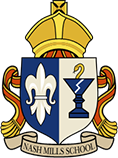How you can help at home
How you can help at home
The early years developmental milestones are divided into seven areas.
The first three of these are called the prime areas
- Communication & language (CL)
- Personal, Social and Emotional Development (PSED)
- Physical Development (PD)
The other areas are called the specific areas
- Literacy (L)
- Maths (M)
- Understanding the World (UW)
- Expressive Art Development (EAD)
The Prime areas are the skill set required to access the specific areas.
Communication and Language
Please talk to your child. It is by far the best thing you can you to help them at school at this age. Unless your child is able to listen to others and speak with confidence, they could struggle to access the curriculum higher up the school. Don't let them gesticulate - insist they use words to communicate. Talk to them about every day life - the shopping, going to bed, the weather, cooking dinner, going to the park, crossing the road etc.
Personal, Social and Emotional Development
Socialise your child when you can. Let them develop relationships with their peers - be they family, friends, after school groups or just children you meet in the playground. Speak to them about their feelings and be accessible to them when they want to talk. Explain why we have to share and be polite to other people. Talk to them about communicating their feelings to others by using their words and why hitting, pushing, shoving is unacceptable. Teach your child how to be independent by letting them organise themselves and giving them small responsibilities around the house.
Physical Development
Take your child to the park. Let them ride a bike and climb on playground equipment. Allow them to take SAFE risks. Encourage them to use their balance skills and let them jump from a safe height. Play ball games with them - throwing, catching, rolling etc. The early years guidance states that children should be able to 'use their core muscle strength to achieve a good posture when sitting at a table or sitting on the floor'. You child should have the opportunity to use their hands and fingers - drawing, painting, playdoh, squeezing a sponge in the bath, kneading dough when cooking, doing puzzles, cutting with scissors etc. Ideally, they should be able to maintain a tripod grip. If your child struggles to pick up their pencil, here is some guidance. It is called the 'pinch and flip' method.
https://www.youtube.com/watch?v=VhtdJ4D0OtQ
Teach your child how to be independent with washing themselves and brushing their teeth, getting dressed, going to the toilet, looking after their toys and tidying up after themselves.
Literacy
Read with your child every day. The phonics books that we provide should be read as often as possible, but no day should be complete without a bedtime story at this age! Encourage your child to question what happens in the story and discuss characters in the book. Ask them to find things on the page, encourage them to get involved. At school, we will be learning all the 'single letter sounds' (Read Write Inc, Set 1), as well as a few of the basic 'double letter sounds' such as sh, th and ch. After half term, your child will be assessed and we'll create phonics groups, offering more support to those that need it and giving a challenge to those that don't. Once you child is given 'sound flash cards', you could help them by going through the cards (not always in order) so your child can become as familiar with the sounds as possible.
Maths
Count things you see in the environment - how many flowers in that bunch, how many apples in that pack, how many cars in the car park etc. Ask them about shapes you can see all around you; square windows, rectangular doors, triangle cheese, circular wheels etc. Challenge them with questions - "I wonder why a roundabout is called a roundabout." "How many more steps will it be until we get home?" Ask them to compare big and little, long and short, tall and small, full and empty etc.
